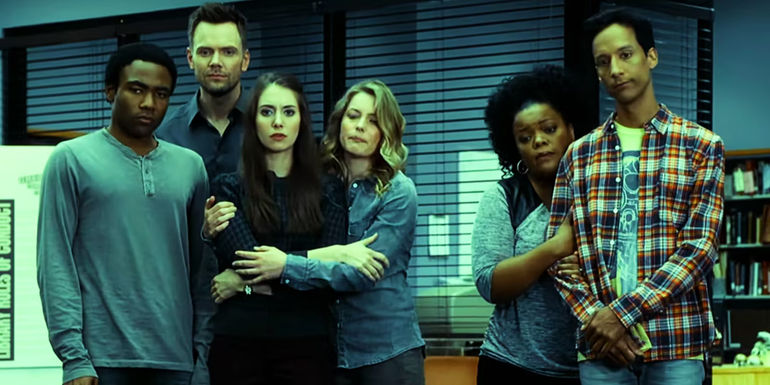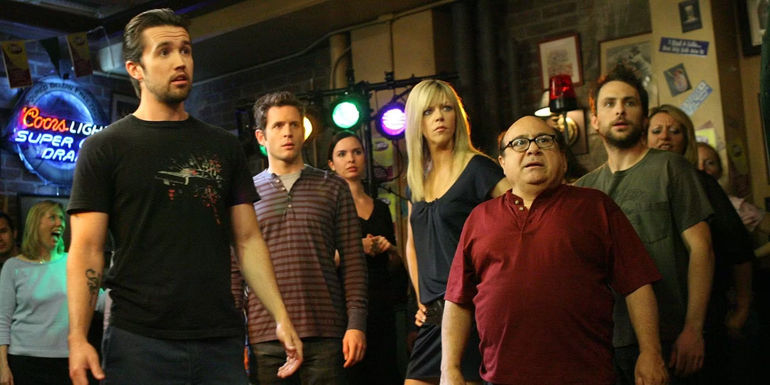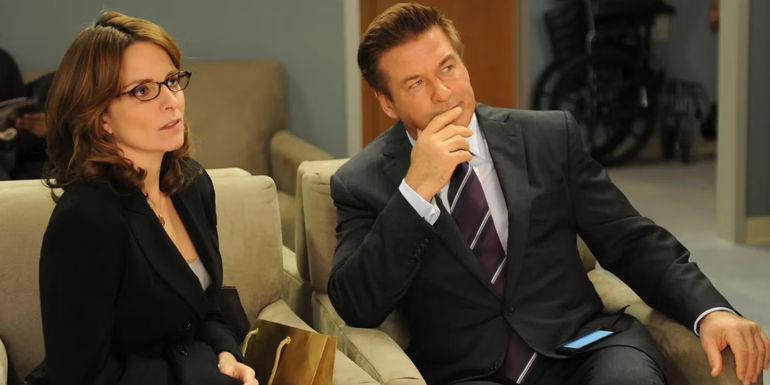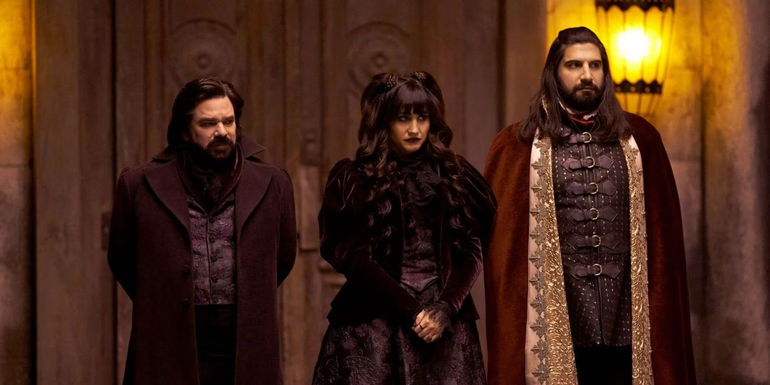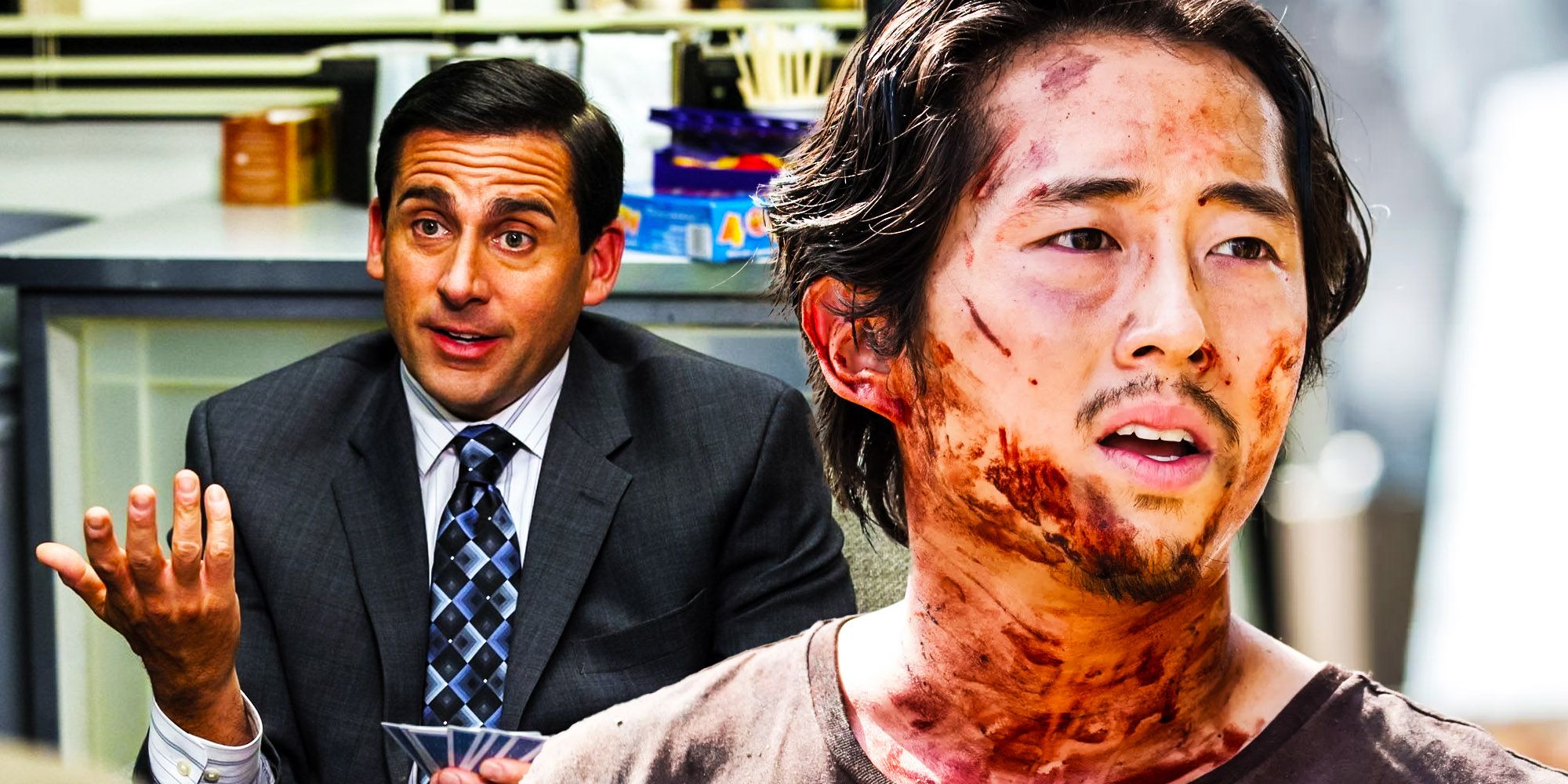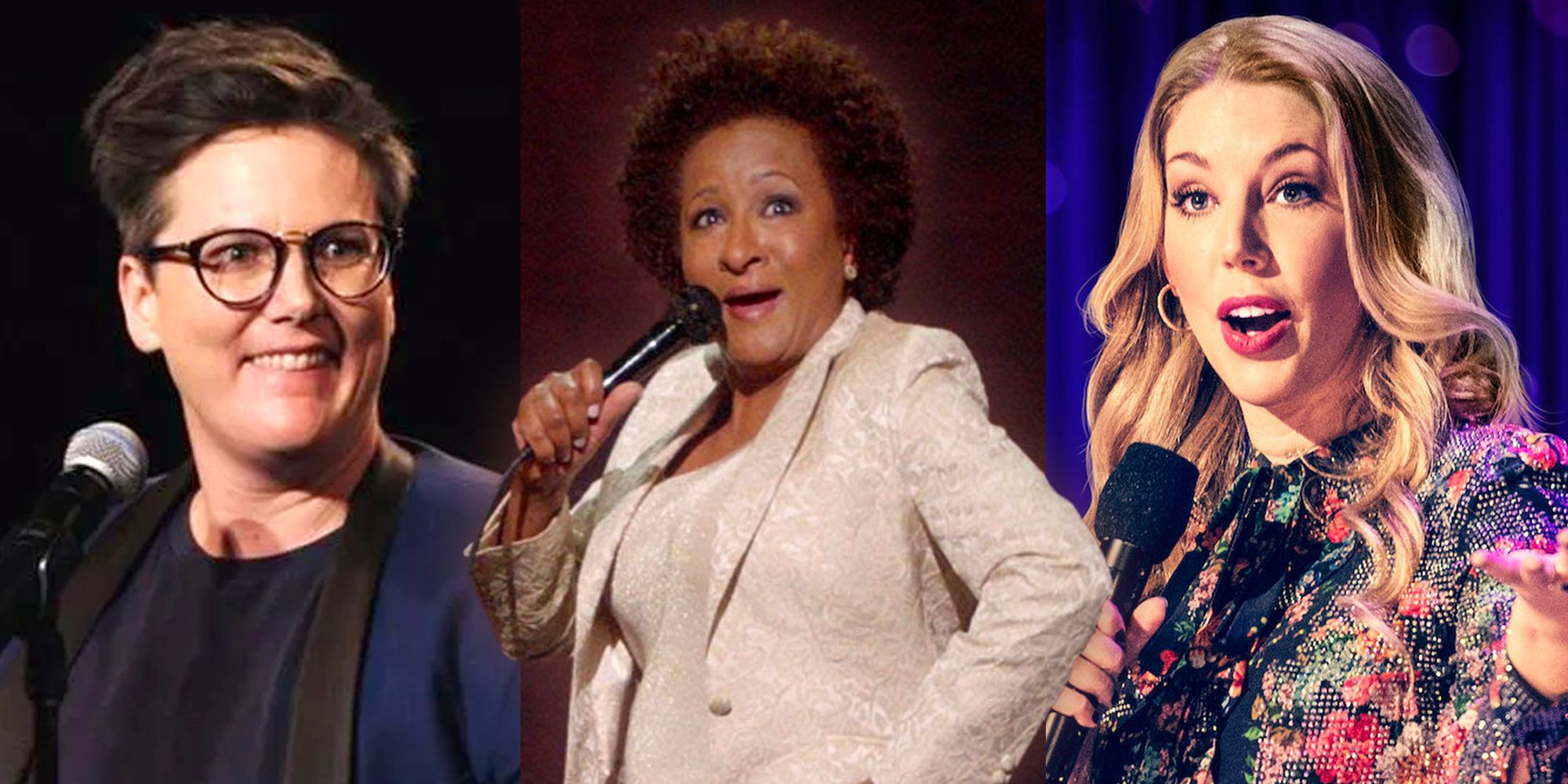
Community (2009 - 2015)
In the realm of sitcoms, few shows have dared to break the mold quite like Community. This series took the traditional format of a sitcom and turned it on its head, delivering epic adventures and genre-defying narratives. The show's self-awareness and ability to poke fun at genre conventions made it a standout in the world of television.
Troy, Jeff, Annie, Britta, Shirley, and Abed all hold each other while standing in the study room in Community.
At the core of Community was the character of Abed, whose encyclopedic knowledge of film and television served as a tool for the writers to deconstruct tropes from within the show. This allowed the series to play with audience expectations and create a new language through which to tell stories, setting a new standard for sitcoms everywhere.
Donald Glover as Troy and Danny Pudi as Abed looking confused in Community
It's Always Sunny In Philadelphia (2005 - )
It's Always Sunny In Philadelphia took the concept of sitcom protagonists to a whole new level by featuring the worst characters as the central figures of the show. This subversion of the typical likable characters in a sitcom allowed the series to explore raunchy and boundary-pushing narratives, making it a standout in the television landscape.
The gang from It's Always Sunny in Philadelphia
Despite the characters' morally questionable actions, the show garnered a devoted fan base and demonstrated that even the most unexpected characters can be extremely entertaining to watch. It's Always Sunny In Philadelphia redefined the boundaries of sitcom storytelling and paved the way for a new wave of unconventional characters on television.
Liz and Jack sitting together in 30 Rock
30 Rock (2006 - 2013)
Tina Fey's 30 Rock challenged the norms of sitcoms by creating a show within a show that delved into the world of television writing and the behind-the-scenes drama of show business. Through its satirical take on the entertainment industry, 30 Rock brought a fresh perspective to the sitcom genre and never shied away from pushing the boundaries of reality.
The series' surrealist tone and willingness to question traditional storytelling conventions made it a trailblazer in the world of television, leaving a lasting impact on the evolution of sitcoms and paving the way for more daring and unconventional narratives.
What We Do in The Shadows' cast looks away
What We Do In The Shadows (2019 - 2024)
What We Do In The Shadows reimagined the sitcom genre by introducing a mockumentary-style series that provided an inside look at the lives of vampires. By humanizing and giving depth to the characters typically portrayed as villains, the show challenged the conventions of sitcoms and fantasy series, offering a fresh and comedic take on the supernatural.
The series' ability to play with genre tropes and subvert audience expectations set it apart as a groundbreaking addition to the sitcom landscape, inspiring a new wave of inventive storytelling in the television industry.
Will Forte sitting down and looking at something The Last Man On Earth.
The Last Man On Earth (2015 - 2018)
The Last Man On Earth defied genre expectations by presenting a post-apocalyptic narrative that focused on the struggles of a man navigating a world devoid of societal norms. By challenging the traditional dynamics of sitcom storytelling, the series questioned the ingrained cultural conventions and societal expectations, offering a thought-provoking and unconventional take on the genre.
Through its exploration of human interaction and the absence of societal structures, The Last Man On Earth pushed the boundaries of traditional sitcom narratives, setting a new standard for thought-provoking and genre-defying storytelling in television.
Claire and Fleabag under an umbrella at a funeral in Fleabag
